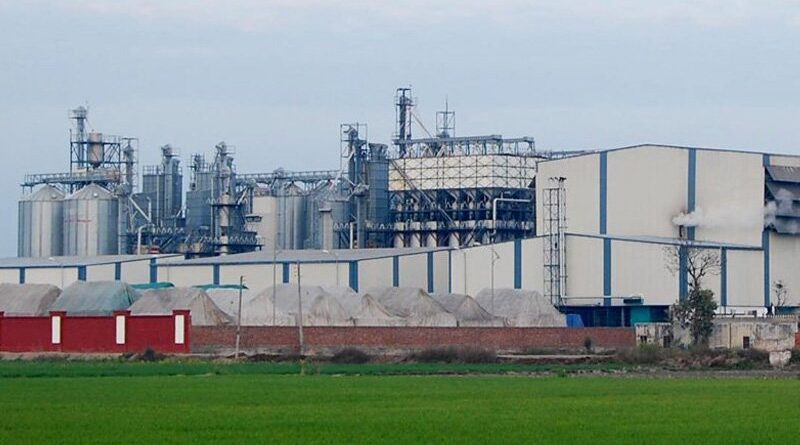Despite ‘resolution’, Punjab rice millers refuse to store paddy in godowns
By Anju Agnihotri Chaba
Days after rice millers in Punjab called off their stir following assurances from the state government, mill owners are still refusing to store government paddy in their facilities. With the kharif season picking up steam in October and accelerating paddy arrivals, the non-lifting of stock from ‘mandis’ (grain markets) has put farmers and the government under pressure.
In response to the critical situation, the Punjab government on Friday issued a letter outlining steps to be taken to manage paddy lifting, storage, and milling.
Rice millers have accused the government of applying indirect pressure to halt their protest last week, alleging that senior police officials were present during meetings to influence the outcome. However, they warn that such tactics will not work unless the government addresses their concerns with concrete actions.
The Millers Association of Punjab called off their strike on October 5 after Chief Minister Bhagwant Mann assured them that the state government would raise their legitimate concerns with the Centre.
“Unless there is a real solution in place, we will not keep paddy in our mills under the current government terms,” said Prem Goel, president of the Akhil Bhartiya Shellers Sangh. He added that both Punjab and Central Governments could collectively resolve the issues, but Punjab has failed to present them to the Centre effectively.
One faction of commission agents, who facilitate the procurement, are also on strike demanding 2.5 per cent commission from the government which is pending.
According to Punjab Mandi Board records, although 3.73 lakh tonnes of paddy have been procured from the total arrival of 4.57 lakh tonnes, only 20,000 tonnes have been transported from the mandis. The government must shift the procured paddy to rice mills, after which it can take possession of the rice.
The rice millers’ core concerns include a lack of storage space in the Food Corporation of India’s (FCI) godowns, inadequate policies governing milling and distribution, and the prevalence of non-recommended hybrid paddy varieties like 7301, 7501, and 468. These varieties, along with the government-recommended PR-126 variety, result in lower rice recovery rates, which falls short of the government’s specifications.
Owners of rice shelling mills claim that last year, they incurred losses ranging from lakhs to crores of rupees due to these hybrid varieties, which yield less rice (62-63%) compared to the 67 per cent expected from government-approved varieties. This year, the area of cultivation under hybrid varieties has increased significantly, particularly in the Doaba and Majha regions, where these crops yield between 30 to 35 quintals per acre.
The government requires rice millers to supply 67 per cent rice from milled paddy. However, they argue that this target is impossible to meet with hybrid varieties without suffering financial losses.“We don’t mind that farmers are benefiting from these varieties, but they are driving rice millers out of business. Without us, what will happen to the farmers’ crop?” said one miller, adding that the government should ban these varieties. Otherwise, they will refuse to store the government’s paddy.
Jagmohan Singh, general secretary, Bharti Kisan Union (Dakaunda), said that not even 5 per cent of the procured paddy from mandis has been shifted so far, leading to major chaos in mandis as paddy arrival has picked up. “We are fearing a big harassment to the farmers in mandis in the coming days and it cannot be tolerated,” he said.
In an effort to streamline the paddy procurement process and avoid storage issues, the Punjab government on Friday issued directives to District Controllers of Food, Civil Supplies, and Consumer Affairs. The instructions aim to ease the handling of hybrid and PR-126 varieties, which have faced resistance from rice millers.
Under the new guidelines, bags containing hybrid and PR-126 paddy must be clearly labeled at the gate pass stage and stored separately in rice mills. Placards must also be placed on these stacks to ensure transparency during the milling process and facilitate accurate documentation of results.
To address the potential glut caused by slow lifting from mandis, the government has proposed converting rice mills into temporary purchase centers. Rice mills interested in this arrangement must submit proposals by October 13 and these mills should be allotted for paddy milling during the current season.
Rice mills that begin storing paddy after completing agreements by October 14 will be allowed to lift paddy from any linked mandi. They can also procure paddy from their own commission shops (arhats) or those owned by family members and relatives.
Furthermore, millers can lift paddy from any mandi in the state, provided they pay the release order fee. To facilitate this, applications for release orders must be submitted by October 15, after which the department will issue the necessary release orders to ensure smooth paddy lifting.
This article has been republished from The Indian Express

